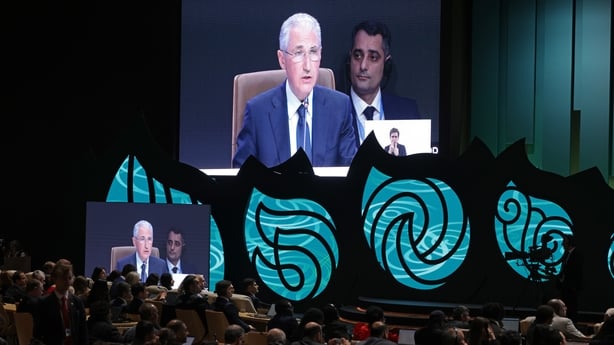Article 6 of the Paris Agreement spoke about providing trusted and transparent carbon markets for countries as they collaborate to reach their climate goals.
The ability to buy and sell carbon credits is also considered to be an important and critical tool for channelling more investment to developing countries.
For instance, it might be far cheaper for a government to pay for the development or protection of a carbon sink, like forestry, in a developing country than it would be at home.
As a result it could also allow countries to target climate mitigation efforts to where the costs are lowest.
Governments at the COP29 talks yesterday approved new standards from the UN for international carbon markets, in a key step towards allowing countries to trade credits to meet their climate targets.
They agreed to a number of crucial ground rules for setting a market in motion after almost a decade of complex discussions.
There have been huge concerns about the potential for fraud and dubious trading in relation to carbon credits, and what precisely would qualify as a carbon sink.
The argument is that without stringent standards in relation to carbon trading, then something like a forest, and the credit for the carbon it is absorbing, could be sold to more than one purchaser.
Or that the credit for the carbon being absorbed by an older existing forest that was never endangered or at risk of being harvested, could be sold to another country despite the fact such a sale would not contribute any additional reductions to global greenhouse gas emissions.
There are also concerns that a purchased carbon sink in another country could be badly managed or left exposed to wildfires for instance.
Concerns like these have held back the development and planning for carbon trading for several years.
The Azerbaijani COP29 Presidency says the new agreement about standards for carbon trading will ensure that the international carbon market can operate with high integrity, and that emissions reductions and removals are real, additional, verified and measurable.

The standards that have been agreed related to just one part, Section 4, of Article 6 of the Paris Climate Accord.
However, the standards agreed are not set in stone.
The negotiating parties will be able to change them or further enhance them as they see fit.
COP29 President Mukhtar Babayev said: “This will be a game-changing tool to direct resources to the developing world.
“Following years of stalemate, the breakthroughs in Baku have now begun.
“But there is much more to deliver.”
There is a lot more work to be done before the full Article 6 and the proper operation of carbon trading is sorted out.
Expert studies have suggested however that if it can all be fully finalised then Article 6 could reduce the cost of implementing national climate plans by $250 billion per year by enabling cross-border cooperation about greenhouse gas reductions.

